Editorials
– Etimad handles the case of Quran Reciter, Saied Tousi that is accused of sexual assault against 19 of his students.
– Afarinsh discusses the future of the EU-Iranian relations after the nuclear deal on the sideline of Mogherini’s visit to Tehran.
Iranian News Roundup
– Omid coalition supports Rouhani’s three ministerial candidates.
– Head of Judiciary visits Iraq.
– Chairman of the National Security Committee: Iran’s Friends gave no Help during Sanctions.
– Obama may not veto the extension of Anti-Iran sanctions.
– Communications workers protest in front of the Iranian parliament.
![]()
Afarinsh Newspaper: Iranian-European Relations
An editorial in Sunday’s Afarinsh newspaper focuses on the importance and the future of the Iranian-European relations after the nuclear deal. Despite the political pressure on Iran during the period of the US economic embargo, after the lifting of those sanctions, Iran has economically turned toward European countries far more than towards the United States due to its long-term commercial, political and cultural relations with the European countries, which were damaged in the previous period due to what the editorial says are the European nations’ non-independent policies which are subordinate to the United States.
The editorialist claims that the lack of consensus among the EU countries and the US concerning strengthening relations with Iran is caused by the US government’s policy of continuing the sanctions and only canceling them on paper. This policy has always represented a threat to companies, banks, and financial institutions, preventing them from resuming relations with Iran. Therefore, the writer says, an imbalance has arisen between the United States and Europe in dealing with Iran, with one of the signatories to the nuclear deal only signing it (a reference to the US), while the other (Europe) has implemented it and won the investment contracts.
Europe currently puts security before investment, especially after the terrorist attacks that struck the heart of Europe, the editorialist continues, so Iranian-European cooperation is key to the fight against terrorism within the Middle East. European countries believe that Middle East nations are not serious in the fight against terrorism on its territory, or at least in the neighboring countries. Therefore, the writer claims, European countries believe that Iran is the only nation struggling against terrorism as well as [supposedly] improving its image in the field of human rights, which the writer asserts are the real keys to cooperation and perhaps partnership with European countries.
Iran has to ensure that the defense of human rights demanded by many European countries is a real need rather than only improving the image of cooperation with Iran in front of the European citizens, and is the result of a genuine conviction among many European peoples. Therefore, the seriousness in combating terrorism and improving the human rights situation in Iran, are the real ways for Iran to enter the heart of Europe. The editorial pontificates about what the situation should be, but already some European countries, particularly Germany, have rushed to sign cooperation agreements with Iran. In fact, despite the claims of European governments to care about human rights conditions in Iran, they have already concluded the exchange of contracts with nothing actually changing concerning the regime’s human rights abuses; execution of dissidents and human rights activists, along with marginalization of minorities, is still the norm, while the regime is creating chaos across the Middle East by intervening in the affairs of neighboring countries. Perhaps the European countries or at least some of them could make an effort to link the actual implementation of these agreements with real modification of the Iranian regime’s political orientation in dealing with regional security and observance of human rights.
Shargh Newspaper: The Cultural Party in the Ministry of Guidance
Shargh Newspaper foresees the future of the Iranian Cultural work after the dismissal of Ali Jannati and the promotion of Ali Akbar Salehi to the ministerial post. Like the rest of the Iranian government agencies, the Iranian Ministry of Culture suffers from being tasked with multiple roles, with its name – the Ministry of Culture and Islamic Guidance – reflecting this duality. The name satisfies reformists and cultural figures, writers, filmmakers, artists, artisans, and others. Meanwhile, the Islamic Guidance section of the ministry also meets conservatives engaged in Hawza [Shiite seminary] activities that deal with the public, such as eulogists and public mourners. Perhaps this is what makes the Ministry of Culture and Islamic Guidance a hotbed of partisan and political conflict, far more so than other Iranian ministries. Thus, the confidence vote for the new minister in the Iranian parliament will be a measure of the current political forces within the parliament. An original problem in the Iranian cultural field is the lack of funding, with the culture division of the ministry receiving only 15 percent of the total budget, while the other 85 percent goes to the Islamic Guidance section, mostly for advocacy work which is concentrated in the hands of the conservatives and Hawza clergy. The second point of contention is the treatment of the writers, artists and others assisted by the ministry by the staff there, which is a relationship marred by a lack of confidence between the two parties. The Much administrative staff has been accused of financial corruption and embezzlement, while they, in turn, accuse artists and other creatives of lacking believe in the principles of the Islamic revolution. Therefore, the editorialist asks whether the newly appointed minister will be able to make any significant changes in the ministry in the five months between now and next year’s election and to effect a productive truce between the conservatives and reformists to make the ministry a success.
Etimad Newspaper: We do not fight the fire
An editorial in Etimad Newspaper focuses on the sex abuse charges against the prominent eulogist Saied Tousi, who is currently facing charges of sexually assaulting 19 children. The editorial asks whether the allegations are true or are an attempt to slander the prominent official, adding that in either case, the case itself represents a major blow to Iranian society, as well as reflecting the stymied nature of Iranian media. This matter has turned into a permanent conversation between the public and regime authorities, the editorialist asserts. The writer says that there are two possible outcomes:
1. If the public assumes that the allegations are fabricated, Iranians must ask themselves why the accusers would want to slander Iran and ruin their reputation by such lies, and what they might stand to gain. If the allegations are untrue, it would also raise questions about the lack of legal accountability in a country where prevention and censorship have the priority over freedom and permissiveness. In this scenario, further serious inquiry and investigation would be required.
2. If either the allegations are found to be wholly or partially correct, this will be a tragedy for the victims and would necessitate a major investigation into Tousi’s other contacts with children.
While some conservatives have claimed that the public revelation of such cases is un-Islamic, the writer added, it should not be forgotten that a fundamentalist newspaper in the country carried some reports on illicit relationships between numbers of artists, publishing salacious details of the relationships. In those cases, the individuals involved were not consulted on the publication of graphic details of their personal lives, unlike Saeed Tousi’s victims, who voluntarily gave interviews concerning their experiences at his hands, the editorialist pointed out. Adding that the conservatives are now claiming to be outraged had nothing to say about the un-Islamic nature of the media coverage in that case. Indeed, the writer went on, in that case, the fundamentalists insisted that the artists involved should apologize, and then refer the matter to the judiciary.
The most serious issue in the Saied Tousi case is that the abused boys felt the need to turn to foreign media to raise awareness among the Iranian public and to deliver their complaints to the competent authorities. All this has happened, the editorial added, under a regime that prevents a female elected deputy, Mino Khaliqi, from taking her seat in parliament simply because political rivals found a photograph of her shaking hands with a male official in front of a crowd of people at a public event. To be scandalized by this while asking that the sexual abuse of 19 young boys be covered up under the pretext of objecting to scandalous behavior is the ultimate hypocrisy, the editorial concluded.
![]()
♦ Omid Coalition Supports Rouhani’s three Ministerial Candidates
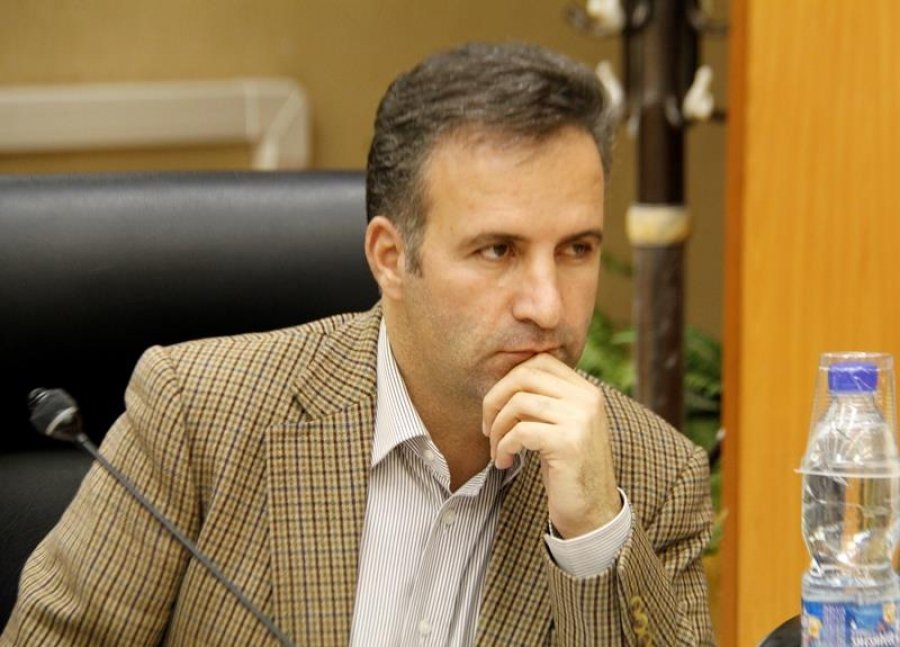
Spokesperson of Omid Parliamentary Coalition, Bahram Barsai said that the coalition would support the three ministerial nominees; Minister of Culture and Guidance, Education, and Youth and Sports. “After establishing three committees to study the history and experiences of the three candidates, we found out that they abide by the regime values and are qualified enough to assume these positions,” Barsai said.
Namah Sahand Site
♦ Obama Might not Veto the Extension of the Anti-Iran Sanctions
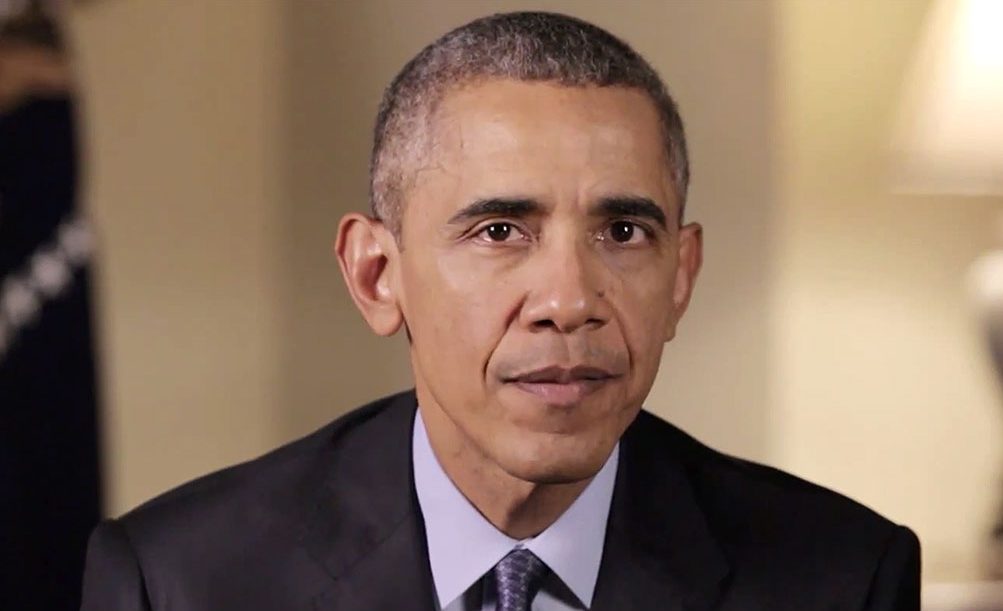
White House well-connected sources said that President Obama might pass the law presented by Republicans about the extension of sanctions imposed on Iran. According to Roll Cal news site that covers the congressional news, the American House of Representatives will vote on the Republican draft law of extending the Anti-Iran sanctions that expire next December without adding any additional conditions.
Afarinsh Newspaper
♦ Two Individuals Arrested in the US for Breaking the Anti-Iran Sanctions

US Judiciary officials announced the arrest of two people for violating the Anti-Iran sanctions. Zawik Zarjirian 52 years old and Fatcheh Nairian, 57 were arrested last Wednesday in California for attempts of breaking the American sanctions on Iran. Henry Tarminasian 55 and Hurmoz Norouz 56 were also involved as stated by the warrants.
Iran Newspaper
♦ Saiedi: Loosening US Sanctions on Dollar is Possible

Executive Manger of the Iranian Navigation Company, Mohammed saiedi said that they expect to regain the company’s trade position they lost during the sanctions, adding that loosening US sanctions to smooth dollar transactions in Iran is one of the American commitments in the nuclear deal.
Iran Asr Website
♦ 15 Thousand Unemployed Workers in Isfahan
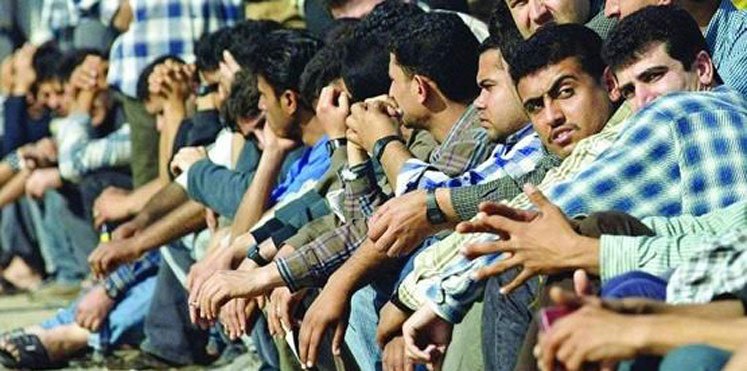
President of Chamber of Trade and Commerce in Isfahan, Abdulwahab Sahl Abadi referred to the problems of the production units in the province, saying that unemployment has increased 2.1% compared with the same period of last year. “8 thousand industrial units are working in the province,” Abadi added.
Watan Amroz Newspaper
♦ Seizure of 47 Bootlegging Gangs in Tehran
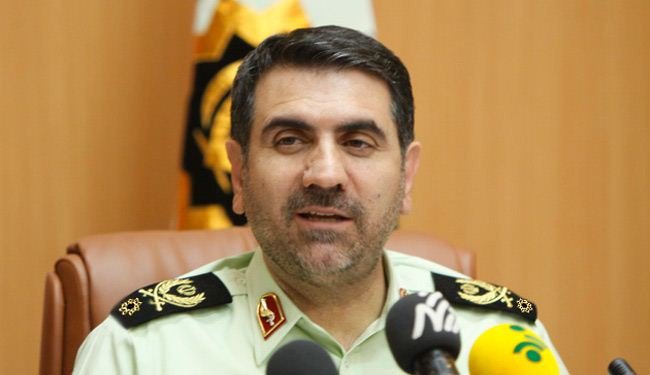
Chief of security forces in Tehran, Hussein Sajidi Nia said that the smuggled goods in Tehran amounted to 111 billion Tomans since the beginning of this year. He added that there are about 3000 smuggling cases carried out by 47 gangs.
ISNA Agency
♦ Omid: the Plan of Excluding Rouhani is not an Option
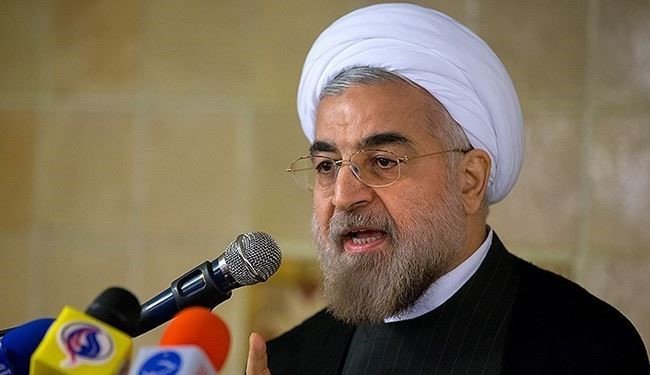
Spokesperson of the parliamentary Omid Coalition, Bahram Barsiai said that the scheme of excluding Rouhani is not on the table. “Omid Coalition has full support for Rouhani for re-electing in 2017,” he added.
Barsiai continued, “Hardliners will only go for their candidate and cannot tolerate reformation. Although they have no status among the public and no chance to win the next elections, they insist on their position.”
Barsiai also said, “Ethics oblige us to respect the other; instead of the defamation of the government and Rouhani, hardliners should introduce an active electoral program, and be aware of the pro-Rouhani environment in the country.”
Arman Amroz Newspaper
♦ Police Special Forces Conduct Ashura Exercises in Tehran

Commander of the Iranian Police Special Forces, Brigadier Hassan Karmi announced conducting the Ashura exercises shortly. He added that 10 thousand soldiers of the Special Forces would be participating in the activities for four days in Tehran.
Etilaat Newspaper
♦ Iran’s Head of Judiciary Visits Iraq
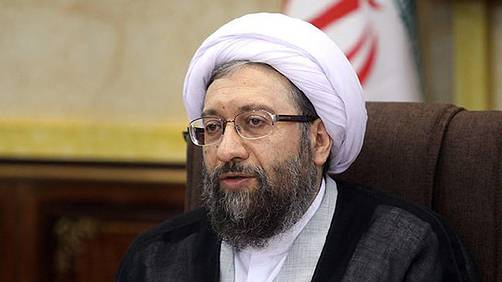
Public Relations Director of the Iranian Judiciary, Hassan Rahimi announced that head of Judiciary, Sadiq Larijani is visiting Iraq accompanied by a high-ranking delegate.
Rahimi added that Larijani has traveled to Iraq in response to an invitation by Head of Higher Council of the Iraqi Judiciary and will discuss ways of enhancing the legal and judicial cooperation between the two countries.
“Larijani also is scheduled to meet the Iraqi president, Prime Minister, and Speaker of the Iraqi Parliament,” Rahimi said.
Etilaat Newspaper
♦ Workers of the Communications Company Protest in Front of the Parliament
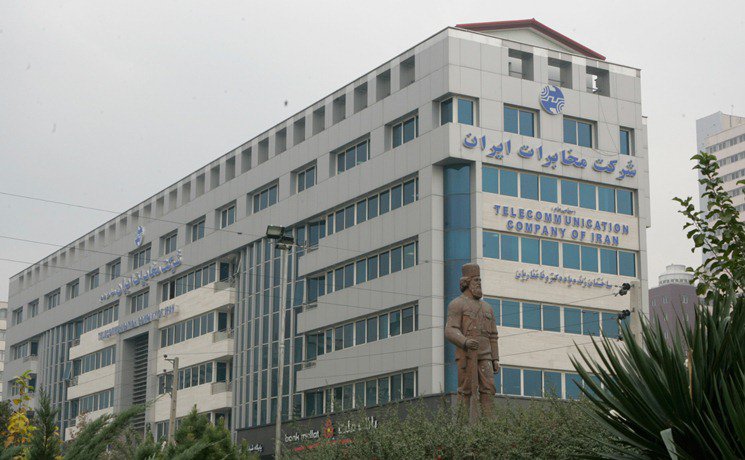
More than 100 employees in the Iranian communications company have protested in front of the Iranian Shura Council, asking for the cancellation of mediation and signing direct contracts with the Iranian communications. Also, they asked for the implementation of the job classification in compliance with articles 36 and 38 of the labor law and job security.
Protesters came from different provinces of Zanjan, Bushehr, Kermanshah, Khozistan, and their numbers are increasing by time.
Mehr Agency
♦ Chairperson of the National Security Committee: Iran’s Friends gave no Help during Sanctions
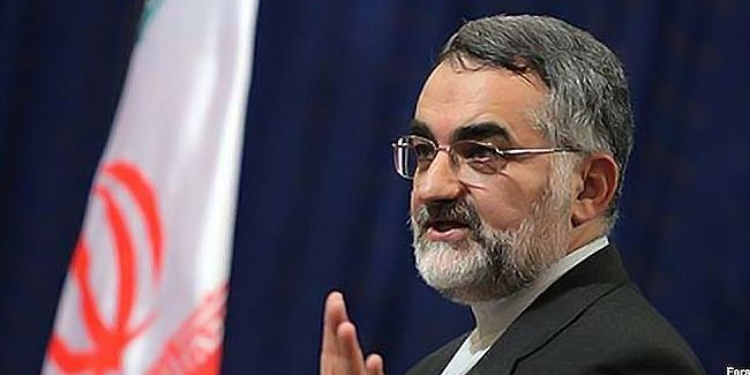
Head of National Security and Foreign Policy in the Iranian Parliament, Ala al-din Borojerdi referred to the achievements of the nuclear deal and the violations of the other side of their commitments, saying that Iran is facing an enemy called the US that has imposed sanctions on Iran in the security council and restricted oil exportation to one million barrels per day. “Oil is the backbone of the Iranian economy, Borojerdi said.
“One of the nuclear deal achievements is that Iran has succeeded to reach the same amount of oil exportation before the sanctions. The problem was that Iran’s friends did not cooperate during the sanctions because they were afraid of facing the same destiny and be exposed to sanctions, which made them run after their interests,” Borojerdi explained.
He concluded, “The nuclear deal has allowed Iran to carry out its activities in different ways; whenever Iran wanted to buy one piece of spare parts under sanctions, it did that in illegal ways, and tens of pro-Iran individuals would be arrested and transported for trial in the Unites States.”
Shargh Newspaper
♦ Basij: We must control the Iraqi Market

Head of Oppressed Commission, Mohammed Riza Naqdi stressed on the necessity to improve micro industries in Iran. During the meeting of the executive and administrative committee for the resistant economy that was held in Ghadeer hall in the central province, Naqdi also said that the Iraqi market is the most important one for selling the Iranian goods.
“Although Iran and Iraq enjoy strong relations, the Iraqi market is controlled by Turkey that does not maintain good relations with Iraq, which is evident that trade and economic ties have nothing to do with political connections. In fact, trade relations are built on the profit-loss basis, and Iran must take the necessary steps to control the Iraqi market, Naqdi explained.
Naqdi also said that think tanks were established during sanctions to benefit from all country’s capabilities. They were introduced by the previous government and the current one but were prevented from utilizing because of governmental bureaucracy.
ISNA Agency
